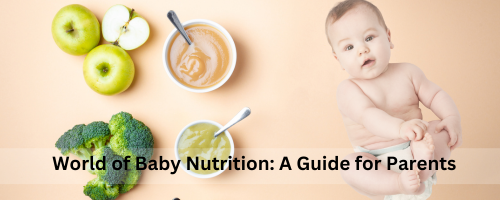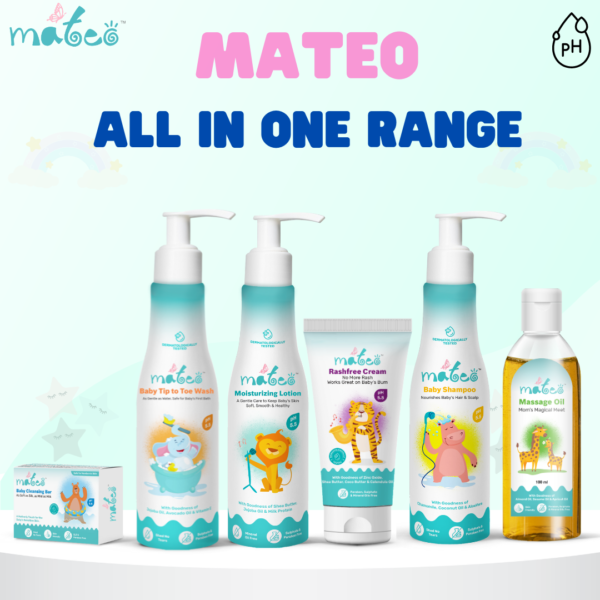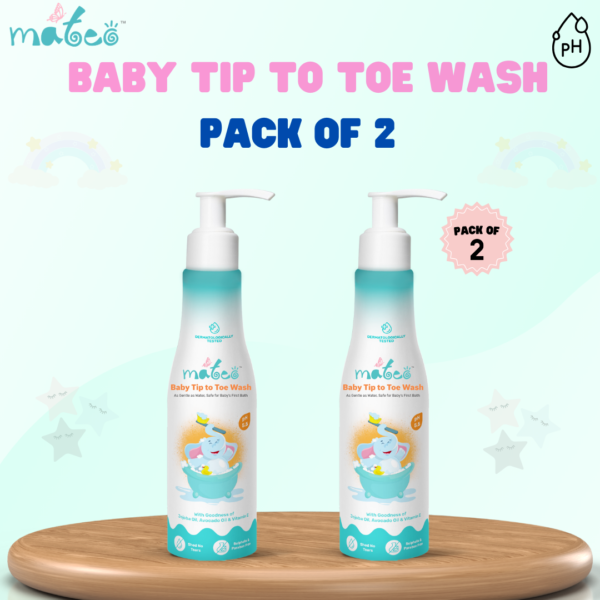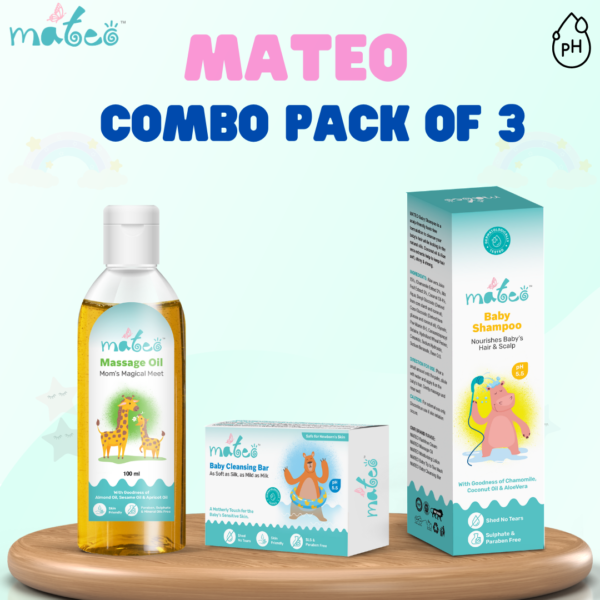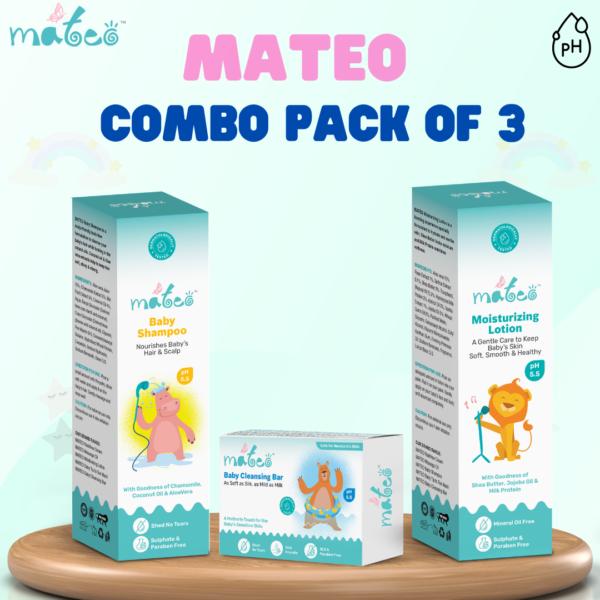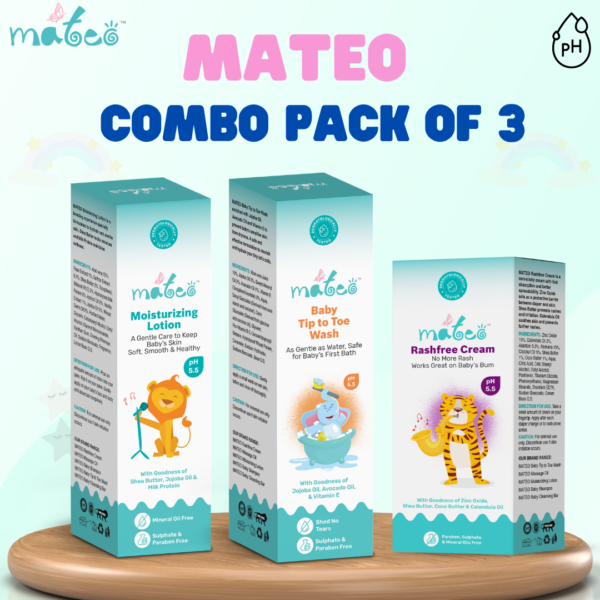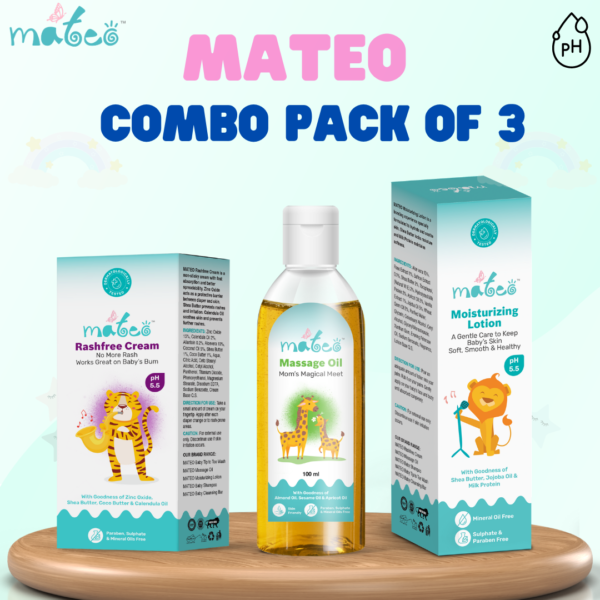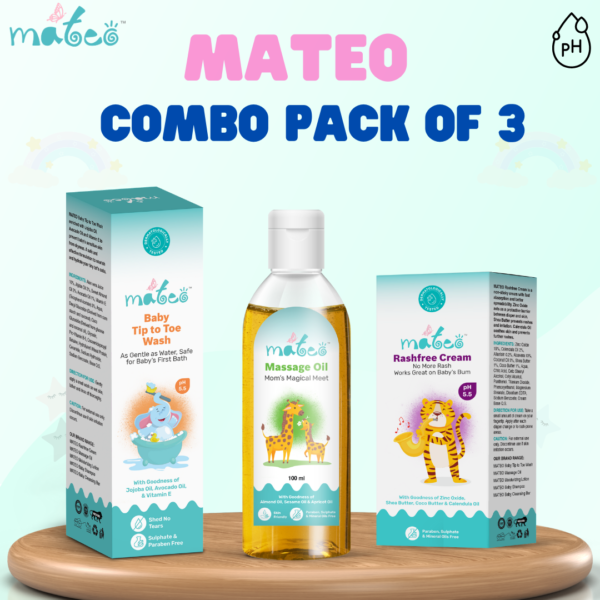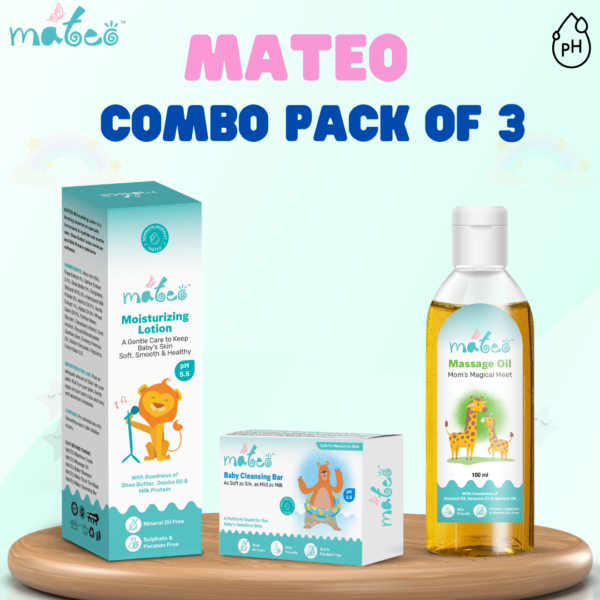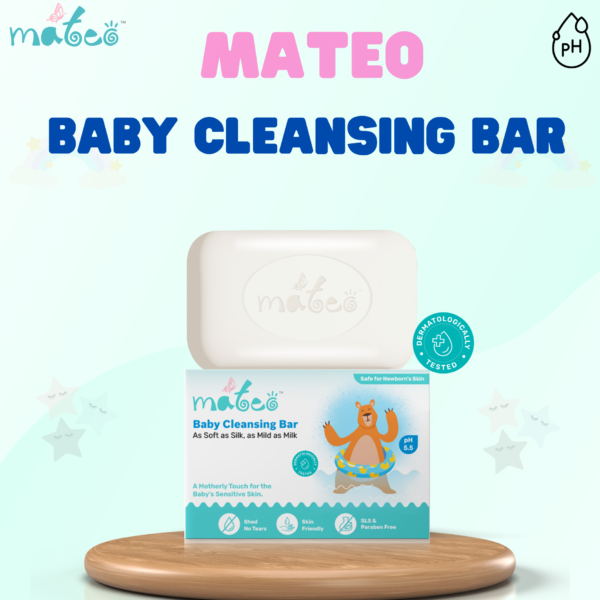Table of Contents
- Important Components of a Healthy Dietary Plan
- Benefits of Breastfeeding
- Baby Food Chart: A Comprehensive Guide
- Nourishing the Journey of Growth and Development
- Which food is better Store Bought or Homemade?
- Timing, Texture, and Self-Feeding
- Patience, Mistakes to Avoid, and Tips for Success
- Crafting Homemade Baby Foods: A Flavorful Symphony
- Steering Clear of Common Mistakes and Cultivating Healthy Eating Habits
- Tips and Tricks for a Successful Feeding Journey
- Conclusion: Empowering Growth and Development
In the early years of baby care, we must give our children nutritious food to foster their growth and development. Making a healthy meal plan for toddlers and preschoolers can be difficult since many food options are available. On the other hand, it is impossible to exaggerate the importance of a baby nutrition diet during these formative years. Creating a nutritious meal plan for children aged 2 to 5 involves taking into account many important factors to make sure they get the best baby food nutrients they need for health, growth and development.
Important Components of a Healthy Dietary Plan
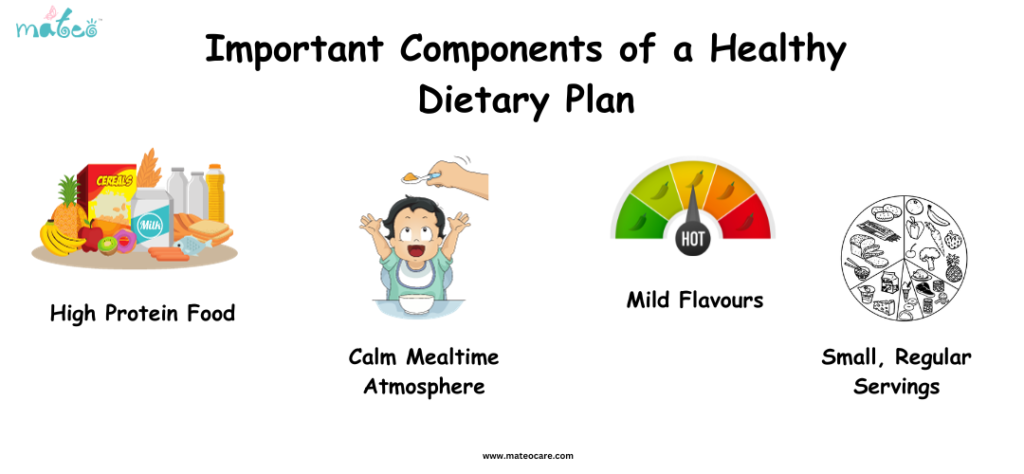
The role of baby food in baby growth is crucial for baby nutrition and health.
1. Foods High in Protein and Energy: Foods high in protein and energy are vital for their development and growth. It is important to include baby food for newborns such as milk, eggs, and peanut butter for their growth.
2. Calm Mealtime Atmosphere: Calm mealtimes help youngsters to eat more voluntarily and promote healthy eating practices.
3. Mild Flavours: To accommodate young palates that aren’t yet completely formed, it’s best to steer clear of extremely flavorful and spicy dishes that may be either homemade or store-bought. To ensure complete nutrition, it is crucial to make sure kids eat enough of each food category.
4. Small, Regular Servings: Providing smaller servings at regular intervals promotes improved digestion and continuous energy levels throughout the day.
Benefits of Breastfeeding
Both the mother and the child can benefit from breastfeeding in many ways. A baby’s immune system is strengthened by antibodies and immunoglobulins found in breast milk, in addition to the vital nutrients it provides for growth and development. Additionally, nursing promotes healthy weight gain, helps moms lose weight after giving birth, and shields newborns from a variety of illnesses and infections.
Baby Food Chart: A Comprehensive Guide
A thorough baby food chart is helpful for parents who are just starting to feed their infants. The transition into this exciting time may be made easier by being aware of the nutritional requirements, indicators that a child is ready for solid meals, and the gradual introduction of varied textures and flavours.
Nourishing the Journey of Growth and Development
Feeding our little ones is a wondrous adventure, a journey into the colourful world of tastes and textures. It’s more than just meals; it’s about providing the building blocks for growth and development. As parents, we strive to create a nurturing environment that fosters not only physical health but also cognitive and emotional development.
Which food is better Store Bought or Homemade?
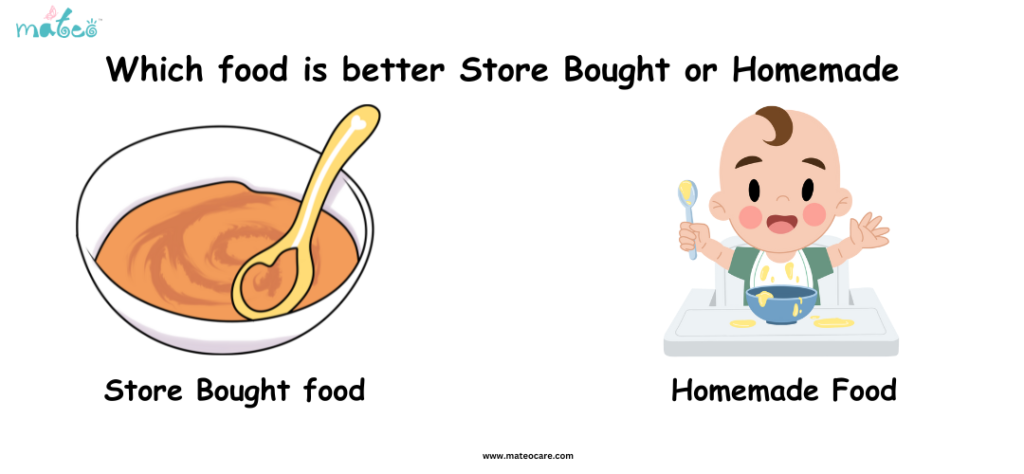
Every mother thinks about which product is better, store-bought or homemade. As they say, variety is the flavour of life, and our infants are no exception. They thrive on a variety of dietary categories, much like adults do. Fruits, vegetables, grains, and proteins are the building blocks of a nutritious diet. To prevent mealtime boredom, provide a wealth of diversity to their diet. Meals prepared at home are the best. They provide you control over the contents, avoiding the preservatives and covert additions that are present in store-bought baby meals. It’s also a chance to spend time together in the kitchen, developing the next MasterChef!But while including a variety of best baby food with best baby nutrition it is also good to include store-bought baby food that comes in a variety of options for flavours and nutrition.
Timing, Texture, and Self-Feeding
Introducing new baby food for newborns is a delicate dance. Pay heed to signs of allergies or sensitivities. One ingredient at a time allows for easy identification of culprits causing any discomfort.
Texture matters; it’s a gradual progression from smooth purees to mashed foods, aiding their chewing and swallowing abilities. Embrace the mess and encourage self-feeding. Sure, it might look like a food-themed Jackson Pollock painting, but it’s a step toward independence and fine motor skills.
Patience, Mistakes to Avoid, and Tips for Success
Babies are tiny adventurers in the world of flavours. Their preferences might not align with your meticulously planned meals, and that’s alright. Be patient; their taste buds will come around. Mistakes? Holding off on allergenic foods, steering clear of excessive reliance on packaged foods, and never forcing a meal. Tips? Persistence, self-feeding encouragement, and embracing diverse flavours.
Crafting Homemade Baby Foods: A Flavorful Symphony
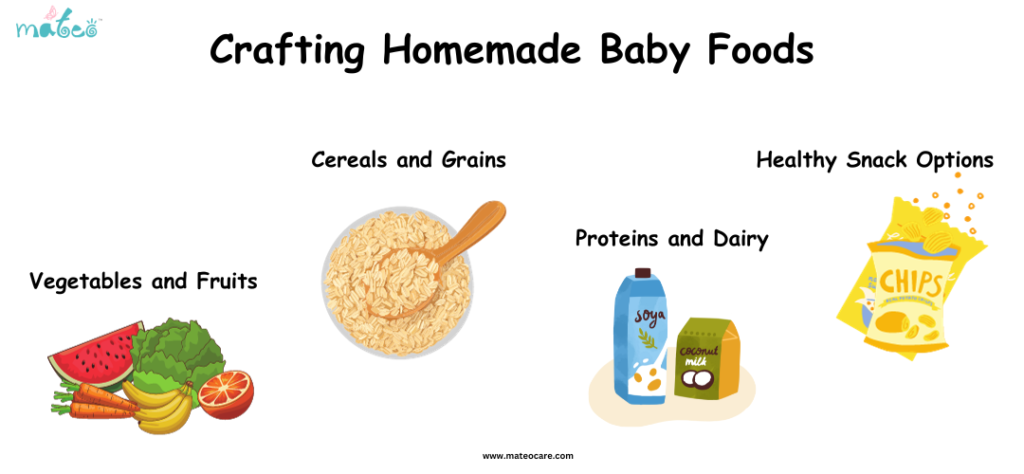
Vegetables and Fruits: A Colourful Palette
Begin with single-ingredient purees – mashed banana, steamed carrots, or smooth avocado – paving the way for a myriad of flavours. Gradually introduce a spectrum of vegetables – sweet potatoes, peas, butternut squash, and spinach – creating delightful combinations.
Cereals and Grains: Powerhouses of Nutrition
Rice and oatmeal cereals make for easily digestible starters. Expand into quinoa, barley, and millet, brewing simple porridges enriched with a hint of cinnamon or a spoonful of fruit puree.
Proteins and Dairy: Building Blocks
Pureed meats like chicken or fish pack a nutritional punch, while lentils, beans, or tofu offer a vegetarian alternative. Introduce yoghurt or cottage cheese gradually, ensuring age-appropriate options and vigilant allergy monitoring.
Healthy Snack Options: Fun and Nourishing
From soft fruit slices to homemade veggie fries, explore a world of nutritious snacks. Steam and mash broccoli or cauliflower, offer unsalted cheese cubes, or whole-grain bread with nutrient-rich nut or seed butter. Playfulness meets nutrition!
Steering Clear of Common Mistakes and Cultivating Healthy Eating Habits
Avoiding Allergenic Foods and Packaged Pitfalls
A child’s digestive system needs time to build resilience. Hold off on shrimp curry for now. Packaged foods may promise convenience but often carry hidden additives. Embrace homemade goodness and taste, steering clear of those price tags that rival a nation’s GDP.
Honouring a Child’s Appetite and Offering Encouragement
Forcing a meal often breeds negative associations with food. Let them explore, nibble, and learn at their own pace. Encouragement and patience win over mealtime battles.
Tips and Tricks for a Successful Feeding Journey
Patience and Exploration
Tiny taste buds need time to acquaint themselves with flavours. Encourage self-feeding, even if it leads to Picasso-like food murals. Keep their meals exciting with a variety of textures and tastes.
Conclusion: Empowering Growth and Development
Feeding our little ones isn’t just about meals; it’s about nurturing their growth and development. The role of baby food in baby growth is crucial. It’s about providing the right ingredients for a strong foundation. As parents, we’re sculpting more than just meals; we’re crafting the future palates and health of our children.

Nivethitha Sridharan
Nivethitha is a mother of two children and has a great interest in writing as an experienced mother. She publishes educational and interesting articles on baby care and also assists parents in selecting the finest baby products for their baby’s skin and well-being. She focuses on infant skin care and health issues. She also provides suggestions and guidance on baby care and avoids common skin disorders in newborns. Nivethitha likes studying and writing about new and innovative ideas that might assist people in finding solutions to their problems. She feels that content writing is an effective means of communicating thoughts and information to the world.
-
Mateo All in One Pack
Add to basket₹1,700.00 -
Mateo Baby Body Wash – 200 ml (Pack of 2)
Add to basket₹790.00 -
Mateo Baby Care Collection – Mateo Baby Massage Oil(100ml), Mateo Baby cleansing bar(75gm), Mateo Baby Shampoo(200ml)
Add to basket₹775.00 -
Mateo Baby Care Collection – Mateo Baby Moisturizing Lotion(200ml), Baby Cleansing Bar(75gm), Baby Shampoo(200ml)
Add to basket₹930.00 -
Mateo Baby Care Collection – Mateo Baby Moisturizing Lotion(200ml), Mateo Baby Body Wash(200ml), and Mateo Baby Rashfree Cream(60gm)
Add to basket₹925.00 -
Mateo Baby Care Collection – Mateo Moisturising Lotion(200ml)+ Mateo Baby Rashfree Cream(60g) + Mateo Baby Massage Oil(100ml)
Add to basket₹725.00 -
Mateo Baby Care Collection-Mateo Baby Body Wash(2ooml), Baby Rashfree Cream(60gm), Baby Massage Oil(100ml)
Add to basket₹770.00 -
Mateo Baby Care Collection-Mateo baby moisturizing lotion(200ml), Baby cleansing bar(75gm), Baby massage Oil(100ml)
Add to basket₹730.00 -
Mateo Baby Cleansing Bar
Add to basket₹185.00

